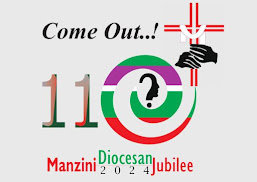Sunday I presided the Masses at Our Lady of Assumption, our Cathedral. The Gospel was the familiar one about the widow of Nain.
Luke says: When the Lord saw her, his heart went out to her and he said, “Don’t cry.”.
Luke says: When the Lord saw her, his heart went out to her and he said, “Don’t cry.”.
Talking about this expression, Fr Fernando Armellini says:
Luke "continues emphasizing the human reaction of the Lord: seeing the widow he was moved with pity. The greek word used indicates a feeling so alive and so intense that the evangelist reserve it to indicate the emotions of God and Jesus. The Lord is no stranger to the dramas and the sorrows of humankind, but no one—Luke seems to say—experiences them so closely and deeply as he does. He understands what a person feels when death breaks the bonds of affection, marks the dramatic separation from loved ones, causes loneliness, confusion and sometimes despair."
Keeping this in mind I was wondering on Sunday who we feel compassion for. Media helps us be aware of so many situations but at the same we risk getting used to watching them on TV, reading about them in our newspapers or listening about them on the radio. They are frequently present in our social media too.
Compassion in the Gospel is much more than a feeling. It moves the person to do something. Like Jesus on last Sunday's Gospel. Like the Good Samaritan towards the man half dead on the road. Like the father in the parable of the "prodigal son" (or "merciful father") who sees the son come and runs to him.
We are a church called to show compassion, to be "merciful like the Father".
Announcing the Jubilee of Mercy, Pope Francis wrote:
One could make a long list of situations challenging us to show mercy and compassionate love.We are a church called to show compassion, to be "merciful like the Father".
Announcing the Jubilee of Mercy, Pope Francis wrote:
"Mercy is the very foundation of the Church’s life. All of her pastoral activity should be caught up in the tenderness she makes present to believers; nothing in her preaching and in her witness to the world can be lacking in mercy. The Church’s very credibility is seen in how she shows merciful and compassionate love. The Church “has an endless desire to show mercy” (EG 24)" (Misericordiae Vultus 10)
In our country the situation of our youth is particularly challenging. I read somewhere that half of them is unemployed. It is a serious matter of concern because they become easy victims of "human trafficking". They easily believe "promises" of jobs in South Africa, for example, never to be seen again. God willing "Caritas Swaziland" will attend the coming "Caritas Africa" gathering in Nigerian this matter. Our diocese is committed to start working in awareness campaigns all over our country.
The situation of refugees is another one we care for. It made me particularly happy to hear about the initiative of the Swazi Council of Catholic Women. They are planning to visit the refugee camp at Malindza this month and commemorate "refugee day" with the celebration of the Mass while taking also some gifts from our parishes and sodalities for them.
The visit of the diocesan executive of the sodality of St Anne during the week became another expression of our "feeling compassion" in our diocese. While updating me on some news they raised the issue of girls being killed in our country and the urgent need "to do something".
These are just some... we could add our care for orphans, the sick, those affected by the drought. We pray we "never tire of extending mercy, and be ever patient in offering compassion and comfort" (MV 25) .
These are just some... we could add our care for orphans, the sick, those affected by the drought. We pray we "never tire of extending mercy, and be ever patient in offering compassion and comfort" (MV 25) .




